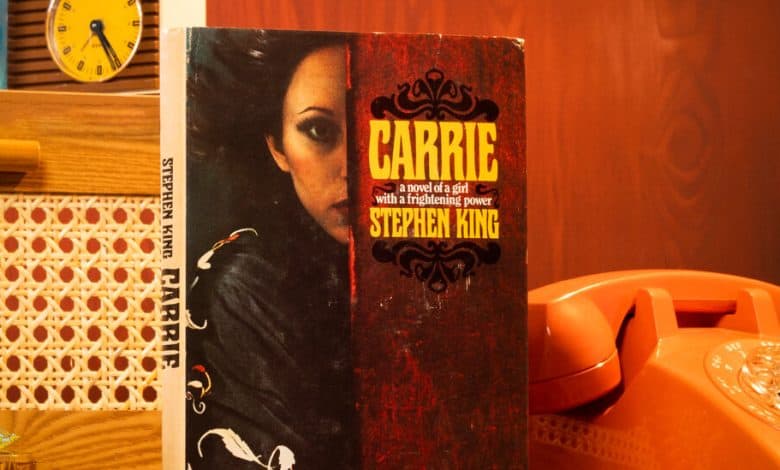Stephen King’s First Book Is 50 Years Old, and Still Horrifyingly Relevant

Stephen King’s “Carrie” burst upon an astonished world in 1974. It made King’s career. It has sold millions, made millions, inspired four films and passed from generation to generation. It was, and continues to be, a phenomenon.
“Carrie” was King’s first published novel. He started it as a men’s magazine piece, which was peculiar in itself: What made him think that a bunch of guys intent (as King puts it) on looking at pictures of cheerleaders who had somehow forgotten to put their underpants on would be riveted by an opening scene featuring gobs of menstrual blood? This is, to put it mildly, not the world’s sexiest topic, and especially not for young men. Failing to convince himself, King scrunched up the few pages he’d written and tossed them into the garbage.
But his wife, Tabitha — a dauntless soul, and evidently of a curious temperament — fished them out, uncrinkled them, read them, and famously convinced King to continue the story. She wanted to know how it would come out, and such desires on the part of readers are perhaps the best motivation a writer can have.
King proceeded. The novel grew into a book with many voices. First, of course, there is Carrie herself: Picked on by her religious fanatic of a mother, by her fellow high school students and by the entire town of Chamberlain, Maine, she is clumsy, yearning, pimply, ignorant and, by the end, vengefully telekinetic. But we also hear from the next-door neighbor who witnessed a violent display of the toddler Carrie’s telekinetic manifestations; from various journalistic pieces, in Esquire and in local papers, about Carrie’s unusual powers and the destruction of the town by fire and flood; from Ogilvie’s Dictionary of Psychic Phenomena and from an article in a science yearbook (“Telekinesis: Analysis and Aftermath”); from Susan Snell, the only one of Carrie’s female classmates to attempt to atone for the wrongs they did to her; and from the academic paper “The Shadow Exploded: Documented Facts and Specific Conclusions Derived From the Case of Carietta White.”

Stephen King in the mid-1970s.Credit…Alex Gotfryd/Corbis via Getty Images
Then there are the inner voices of various other characters, as overheard by Carrie, who toward the end of her life becomes telepathic and can listen in on the silent thoughts of others, as well as broadcasting her inner life to them. Together, the many voices tell the horrifying tale.
